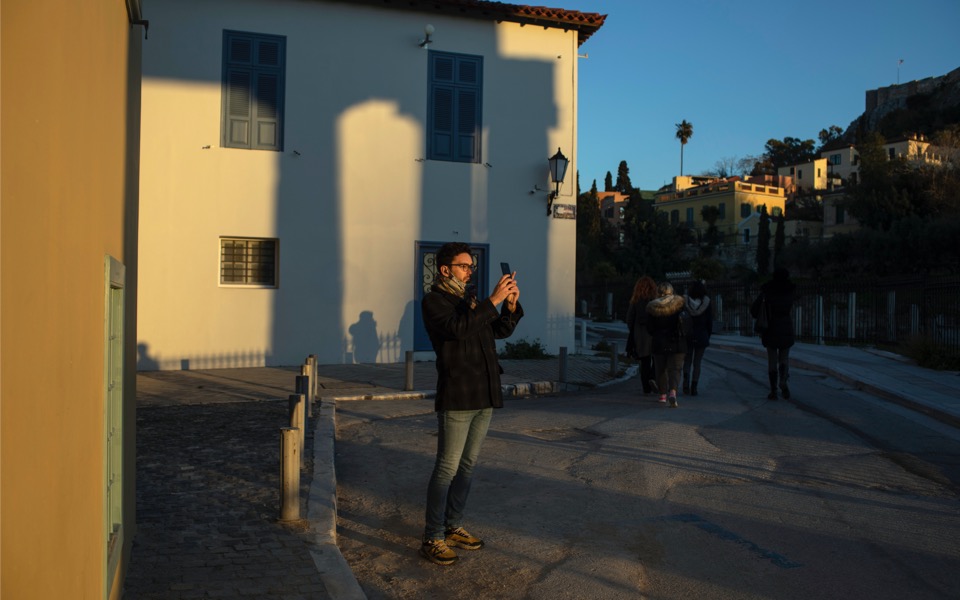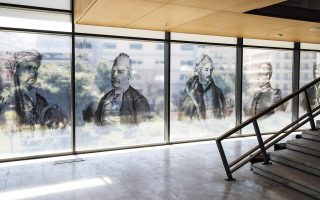How things will have changed a century from now

“Utopia” is one of the many Greek words used in English. For many, it denotes a place of impossible fantasy. In my view, Greece could really be such a place.
In this last year, it has felt as if the whole world is in a state of upheaval and change. Both politically and environmentally, nothing has felt secure. It is just my own speculation, but I wonder if this will draw some more of the highly educated and successful Greek diaspora back to their “patrida.” They might recognize that the values and the way of life in Greece could offer much more than they will ever find in the supposedly more successful economies where they live. Their return would greatly strengthen Greece.
Specifically imagining Athens in 100 years’ time, there is one thing that dominates my hopes: that the buildings of the past 150 years that are currently in a state of dilapidation will have been restored. In my dreams, there will be a project inspired by the photographs and writing of Nikos Vatopoulos to ensure the salvation of derelict and precious architecture. His book “Facing Athens” would be the blueprint, the handbook, for this, not just to preserve the past for its own sake, but to respect the elegance and grace of the past so that it can sit side by side with the best of the modern. Such an initiative (and I think it will take 50 years) would have a huge impact on tourism too. Many visitors go to the Acropolis and a couple of museums and then make a dash for the islands, intimidated by the sight of dark, boarded-up mansions in the heart of the city. Athens should seize the moment now before it’s too late. The longer-term benefits will be immense.
By the time this huge restoration project has happened, I would be happy to think that the anger that inspires someone to daub graffiti on the walls of a beautiful building will simply not be there. Graffiti is usually an expression of fury against inequality and social injustice and while those factors are still there, perhaps my notion is naïve. It goes without saying, that societal improvement underscores all images of the future.
In 100 years’ time, I hope the Parthenon Marbles currently in the British Museum will be in Athens and that our grandchildren will assume they have always been there. When they learn that they resided in London for a long period of time, they will find it impossible to believe.
I believe that in the next few decades (it has already begun since the pandemic, I think) there will be a growing appreciation and appetite for a more authentic life, away from the city. We no longer see “progress” only being about the “new.” Technology is also allowing us to lead connected lives without the need to be in a specific place. Island life, therefore, which might once have seemed so cut off, will no longer be perceived that way. Living in a natural unpolluted environment allows us to be more in touch with ourselves as well as with nature, and I wonder if, a century from now, many more people will have been drawn back to the islands to lead their best possible lives. They will be the new “utopians.” A new tourist boom will follow, as foreigners flock 12 months of the year to have a taste of this ideal life.
PS I would love to think that antagonism from the neighbor will have come to an end by 2121. Given that we are celebrating 200 years of independence, it is more than ironic that Turkey’s attitude still continues to drain Greece’s resources (financial and mental). At least there is one certainty. There will be a different president by then and I can only pray that he (or even she) will lead Turkey in a more enlightened fashion and cease to bully the people next door.
Victoria Hislop is a writer.





